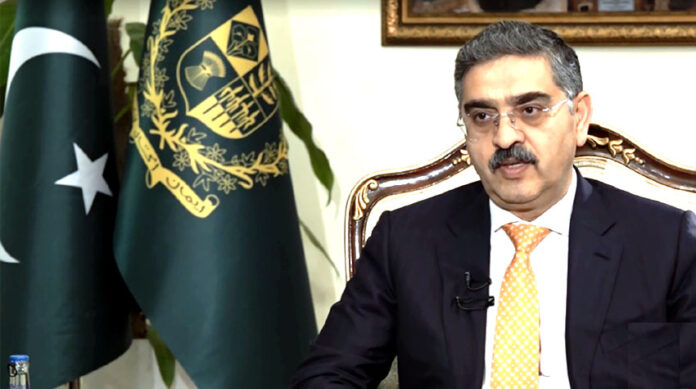The caretaker administration under Prime Minister Anwaarul Haq Kakar has set a new precedent in bank borrowing, with figures reaching nearly Rs4 trillion from July 1, 2023, to January 19, 2024.
This surge in borrowing marks a significant 185% increase compared to the same period in the previous fiscal year, where the government had borrowed Rs1.398 trillion, according to data from the State Bank of Pakistan.
This fiscal year’s borrowing has already outpaced the total amount borrowed in FY23, raising concerns about the economic implications as Pakistan grapples with a substantial debt load.
Despite achieving revenue collection targets for the first six months, the government’s borrowing spree continues unabated, driven by the need to cover escalating expenditures.
Inflation has been a double-edged sword for the economy, averaging over 28% in the past seven months, which, while boosting revenue through higher liquidity, has also necessitated increased government spending.
The financial strain is further compounded by sluggish economic growth, insufficient revenue generation, and the burden of domestic and foreign debts.
Additionally, the government faces pressure to address the power sector’s circular debts, now standing at Rs5.7 trillion.
The borrowing strategy, with returns around 21%, represents a costly endeavor for the caretaker government, consuming over half of the budget for debt servicing alone.
This approach has been critiqued by financial experts and acknowledged by the government as a significant economic challenge.
Banking institutions have emerged as the primary beneficiaries of this situation, reporting doubled profits in 2023. With government borrowings in FY22 and FY23 recorded at Rs3.448 trillion and Rs3.716 trillion respectively, the trend towards increased borrowing seems unlikely to reverse in the near term.
The upcoming general elections on February 8 and the anticipated formation of a new government may prolong political uncertainties, dampening investment prospects.
Observers note the challenging economic climate, with the International Monetary Fund (IMF) projecting a modest 2% GDP growth for FY24 and high base lending rates discouraging new ventures.
Amidst these challenges, the outlook for economic growth in FY24 remains guarded, echoing the previous fiscal year’s negative growth rate of -0.6%.





bunch of clowns brought by the establishment as scapegoats.
You can certainly see your expertise within the work you write. The sector hopes for even more passionate writers such as you who aren’t afraid to mention how they believe. At all times go after your heart.
Youre so cool! I dont suppose Ive read anything like this before. So nice to find any individual with some unique thoughts on this subject. realy thank you for beginning this up. this website is something that is needed on the net, someone with a little originality. useful job for bringing one thing new to the web!
Im no professional, but I consider you simply made an superb factor. You definitely completely recognize what youre speaking about, and i’m able to virtually get behind that.
Also I believe that mesothelioma cancer is a exceptional form of melanoma that is typically found in those previously subjected to asbestos. Cancerous tissue form from the mesothelium, which is a defensive lining that covers many of the body’s body organs. These cells usually form in the lining of the lungs, tummy, or the sac which actually encircles one’s heart. Thanks for revealing your ideas.
Hello my friend! I want to say that this post is amazing, great written and include almost all important infos. I?d like to look more posts like this .
If you are thinking, could someone take my online course for me without any hassle? Let us be your academic partners to elevate your learning journey! We have a team of subject specialists for your professional help.
Thank you for the auspicious writeup. It in reality used to be a leisure account it. Look advanced to far delivered agreeable from you! However, how can we keep up a correspondence?
That’sthe explanation promoting that you just suited preparation in advance of developing. It is usually probable to jot down increased putting up using this type of.
This is certainly also a very good post that any of us absolutely beloved looking at. It may not be regular i always have the chances to view a little something.
The subsequent seems including it goes without saying excellent. Almost all these trivial details are meant by employing volume of footing understanding. I love to these individuals drastically.
This excellent is undoubtedly fantastic. Most of these minuscule truth is generated applying broad range connected with accreditation know-how. When i benefit taking that approach lots.
This is certainly also a very good post that any of us absolutely beloved looking at. It may not be regular i always have the chances to view a little something.